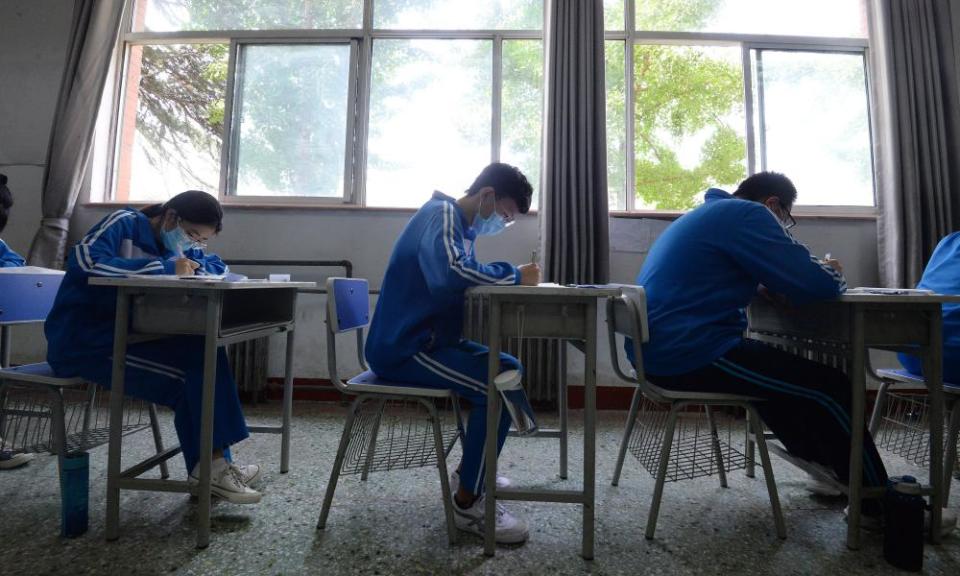China to criminalise college exam fraud after identity thefts

Chinese lawmakers are seeking to criminalise identity theft in college entrance exams, after revelations that hundreds of students in a single province had their scores stolen or used by others.
This year more than 10 million students will sit China’s gaokao, a state-level exam for entering college widely seen as a key path to higher education for students from underprivileged homes.
In June Chinese media revealed several Shandong universities had discovered 242 graduates who had stolen the identity and gaokao score of another person to enrol themselves between 1999 and 2006. It said in most cases the victim didn’t know their name and gaokao score had been taken. According to reports dozens of people have been punished but penalties for students are currently not legislated.
Related: Wuhan residents told to stay indoors again after record rainfall
The standing committee of the National People’s Congress has since received a proposal to criminalise exam fraud, and on Thursday the ministry of education announced it would work with authorities to investigate and hold students accountable, China Daily reported.
Zhu Mingchun, member of the NPC Standing Committee, said while some of those involved in such an act, including education authorities and school managers, could be charged under existing laws, “for students it does not constitute a crime”.
Zhu proposed a new crime of criminally obstructing a higher examination admission, or an impersonation offence.
Last week 46 people were punished in Shandong for their involvement in two cases, reports said, including the theft of a 36-year-old woman’s exam score from 2004 for a student two years younger who used it to enrol at a university in 2007.
The student has since been stripped of her diploma and fired from her job. Sixth Tone reported that her father and uncle had arranged the theft and “coercive measures” had been taken against the father, which may refer to detention or house arrest. Eight others were under investigation or had been demoted.
Across social media there are numerous anecdotes of students sitting the exams under someone else’s name or taking the results of another student.
In one story posted to Weibo a former student described their school choosing some of the brightest younger students to sit the gaokao on behalf of students at another school. It suggested they were paid to do so.
“I don’t want to blame the selected students, because they actually had no choice. But I remember that this matter didn’t encounter any obstacles in its implementation,” they wrote.
“To what extent must the education system be distorted so that such a large-scale activity can be organised and conducted so openly? It requires the close cooperation of at least two local education systems and benefits the rich families.”
Additional reporting by Pei Lin Wu

 Yahoo News
Yahoo News 